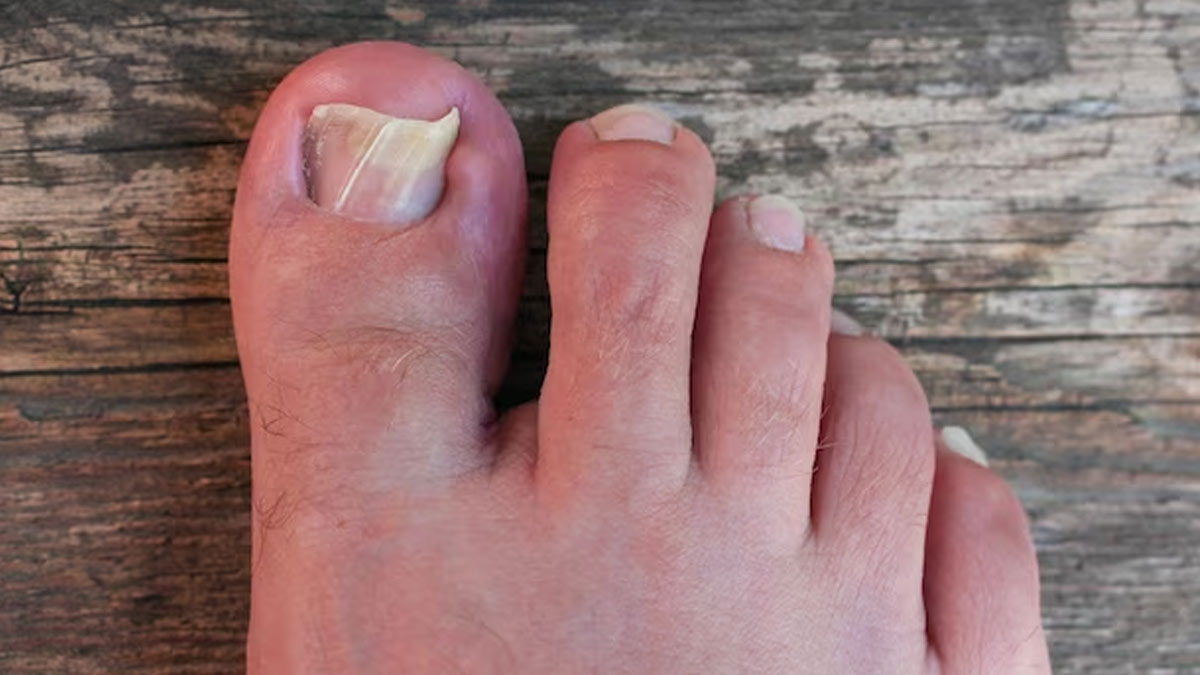
Ingrown toenails can be an excruciating and frustrating problem that many people experience. From the discomfort of wearing shoes to the painful throbbing of an infected toe, ingrown toenails can be a real pain. It is a common but painful condition that occurs when the edge of the toenail grows into the surrounding skin. This can cause redness, swelling, and discomfort, and in some cases, infection. In this article, we delve into the causes, treatment, and preventive measures for ingrown toenails.
Table of Content:-
Ingrown toenails can be caused by a variety of factors, and fortunately, there are several ways to treat them. In this article, we will explore the causes of ingrown toenails and different ways to treat them.
Causes of Ingrown Toenails
There are several factors that can contribute to the development of ingrown toenails. Some of them are as follows:

Incorrect Nail Trimming
One of the most common causes of ingrown toenails is improper nail trimming. Cutting the nails too short or rounding the corners can cause the nails to grow into the skin.
Tight-fitting Shoes
Shoes that are too tight or narrow can put pressure on the toes, causing the nails to grow into the skin.
Injury
Trauma to the toes, such as stubbing or dropping something on them, can cause the nails to become ingrown.
Genetics
In some cases, the shape and curvature of the toenails may be inherited, making them more prone to becoming ingrown.
Poor Foot Hygiene
Not keeping the feet clean and dry can increase the risk of infection and ingrown toenails.
Also Read: Biting Your Nails? Know How It Can Affect Your Teeth And Gums
Different Ways to Treat Ingrown Toenails

Soaking Your Feet
The easiest yet effective way to treat ingrown nails is by soaking your feet in warm water. Do this for at least 15 minutes several times a day to reduce pain and swelling. You can even add Epsom salt to the water for added benefits.
Try Using A Toe Protector
For ingrown toenails, a toe protector offers a cushioning barrier. Toe protectors can be purchased as full-toe covers or as rings that fit around the injured area.
Medications
Over-the-counter pain relievers can help relieve pain and reduce inflammation. Antibiotics may be necessary if the toe becomes infected. Consult with your doctor before using any medication or antibiotics.
Surgery
In severe cases where the toenail is deeply embedded in the skin, surgery may be necessary to remove a portion of the nail and the surrounding tissue.
Also Read: 10 Fingernail Problems You Should Not Ignore
Tips To Prevent Ingrown Toenails
Preventing ingrown toenails is the best way to avoid the pain and discomfort associated with this condition. Here are some tips for preventing ingrown toenails:
Proper Nail Trimming
Trimming the toenails straight across and avoiding rounding the corners can help prevent ingrown toenails from developing.
Wearing Proper Footwear
Wearing shoes that fit properly and have enough room in the toe box can help prevent ingrown toenails.
Practice Foot Hygiene
You should practice good foot hygiene by keeping your feet clean and dry. Also, avoid wearing tight socks or stockings.
Conclusion
If you have a history of ingrown toenails, consider seeing a podiatrist for regular foot care. It may result in infection that may spread to deeper skin layers if left untreated.
Also watch this video
Read Next
7 Tips To Fix Knock Knees
How we keep this article up to date:
We work with experts and keep a close eye on the latest in health and wellness. Whenever there is a new research or helpful information, we update our articles with accurate and useful advice.
Current Version
